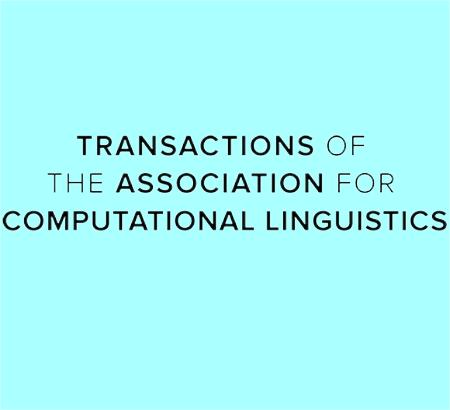General then Personal: Decoupling and Pre-training for Personalized Headline Generation
IF 4.2
1区 计算机科学
Q2 COMPUTER SCIENCE, ARTIFICIAL INTELLIGENCE
Transactions of the Association for Computational Linguistics
Pub Date : 2023-12-01
DOI:10.1162/tacl_a_00621
引用次数: 0
Abstract
Abstract Personalized Headline Generation aims to generate unique headlines tailored to users’ browsing history. In this task, understanding user preferences from click history and incorporating them into headline generation pose challenges. Existing approaches typically rely on predefined styles as control codes, but personal style lacks explicit definition or enumeration, making it difficult to leverage traditional techniques. To tackle these challenges, we propose General Then Personal (GTP), a novel framework comprising user modeling, headline generation, and customization. We train the framework using tailored designs that emphasize two central ideas: (a) task decoupling and (b) model pre-training. With the decoupling mechanism separating the task into generation and customization, two mechanisms, i.e., information self-boosting and mask user modeling, are further introduced to facilitate the training and text control. Additionally, we introduce a new evaluation metric to address existing limitations. Extensive experiments conducted on the PENS dataset, considering both zero-shot and few-shot scenarios, demonstrate that GTP outperforms state-of-the-art methods. Furthermore, ablation studies and analysis emphasize the significance of decoupling and pre-training. Finally, the human evaluation validates the effectiveness of our approaches.1先通用后个人:个性化标题生成的解耦与预训练
摘要 个性化标题生成的目的是根据用户的浏览历史生成独特的标题。在这项任务中,从点击历史记录中了解用户偏好并将其纳入标题生成是一项挑战。现有的方法通常依赖预定义的风格作为控制代码,但个人风格缺乏明确的定义或枚举,因此很难利用传统技术。为了应对这些挑战,我们提出了 "先通用后个人"(General Then Personal,简称 GTP)这一包含用户建模、标题生成和定制的新型框架。我们使用强调两个核心理念的定制设计来训练该框架:(a) 任务解耦和 (b) 模型预训练。通过解耦机制将任务分为生成和定制,进一步引入了两种机制,即信息自增强和掩码用户建模,以促进训练和文本控制。此外,我们还引入了新的评估指标,以解决现有的局限性。我们在 PENS 数据集上进行了广泛的实验,考虑了零镜头和少镜头两种情况,结果表明 GTP 优于最先进的方法。此外,消融研究和分析强调了解耦和预训练的重要性。最后,人工评估验证了我们方法的有效性1。
本文章由计算机程序翻译,如有差异,请以英文原文为准。
求助全文
约1分钟内获得全文
求助全文
来源期刊
CiteScore
32.60
自引率
4.60%
发文量
58
审稿时长
8 weeks
期刊介绍:
The highly regarded quarterly journal Computational Linguistics has a companion journal called Transactions of the Association for Computational Linguistics. This open access journal publishes articles in all areas of natural language processing and is an important resource for academic and industry computational linguists, natural language processing experts, artificial intelligence and machine learning investigators, cognitive scientists, speech specialists, as well as linguists and philosophers. The journal disseminates work of vital relevance to these professionals on an annual basis.

 求助内容:
求助内容: 应助结果提醒方式:
应助结果提醒方式:


